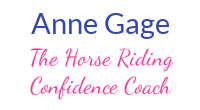 While having coffee with a good friend the other day, the conversation turned to horses and the particular problem she was experiencing with her new riding partner who is a relatively green horse. She had recently bought him to replace her older, well schooled mare. She was having problems with the trot to canter transitions. The transitions were inconsistent. Sometimes he ran into them. Sometimes he picked up the wrong lead. Sometimes they were okay. Sometimes she couldn’t get them at all.
While having coffee with a good friend the other day, the conversation turned to horses and the particular problem she was experiencing with her new riding partner who is a relatively green horse. She had recently bought him to replace her older, well schooled mare. She was having problems with the trot to canter transitions. The transitions were inconsistent. Sometimes he ran into them. Sometimes he picked up the wrong lead. Sometimes they were okay. Sometimes she couldn’t get them at all.
My friend was not blaming her horse. She sincerely wanted to resolve this problem both for her horse’s sake and her own. However, she was making an assumption about her horse. She was assuming that he “knew” what she was asking him to do and that he was capable of just doing it.
At one point she said that she didn’t mind if her horse ran into the canter because a bad transition was better than no transition. At least she was getting the canter. Again, she was making an assumption. She assumed that the transitions would just get better eventually.
What my friend assumed was that her horse understood “exactly” what she wanted him to do. She assumed that his understanding of her aids and intention was exactly the same as her understanding.
Truth is this young horse doesn’t really know what specifically he is being asked to do. He has been trained to understand that certain cues or aids mean he should go forward. But, forward could mean more trot, an extended trot, a collected trot or a canter transition. He gives a response to a cue. If his response is what the rider was wanting, he has to be told “yes” in a way that is clear to him. Removing the pressure of the cue would indicate that he has given the desired response. If his response is not what the rider wanted, he has to be told “no” in a way that is clear to him. The rider also has to make sure that the horse is set up properly in order to be able to complete the desired task. In my friend’s case, for the canter transition, she first must make sure the horse is traveling in a balanced, forward trot with his hind quarter engaged and his back round. Once that is achieved, she must give the cue for the canter transition. If the horse responds by “running”, she needs to tell him “no” by bringing him calmly back to the balanced, forward, engaged trot. Then she must give him the exact same cue for the canter transition. Every time he responds with anything other than a canter, she must bring him calmly back to the balanced, round, forward trot.
My friend listened, nodded, and replied, “So if I let him run into the transition, he will think that is how he is supposed to do it.” She would be training him to run into the canter transition rather than smoothly moving into the canter from the trot.
Horses are not mind readers and don’t know what we want. Here’s an exercise to try with a friend which will give you a better idea of what it is like for the horse. Stand with your arms stretched out in front of you and hold a lunge line between your hands to simulate the horse having the bit in his mouth. Your friend stands behind you holding the ends of the lunge line like reins. You close your eyes. Have your friend move you around the arena without giving any vocal cues just by moving your body with pressure from the reins.
My friend had been assuming that her horse“knew” what was expected and had been getting frustrated that he wasn’t responding the way she wanted. Once she changed her thinking and understood her horse’s perspective, she was able to change her training method to help her horse achieve the kind of transition she wanted.
If you assume the horse is just being difficult, or stubborn, or lazy, then you take no responsibility for his behaviour. The key to good training is not making assumptions, but trying to understand your horse’s perspective to figure out why he is behaving in a certain way and what you need to do to help him understand what he is being asked to do.
YOUR TURN
Rather than assuming what your horse is thinking or understanding, how can you change your perspective so that you can grow as a rider? Please leave a comment or share your thoughts below or through Facebook, LinkedIn or Twitter.
Share this post to spread the word about a better way to work with horses. Enjoy your journey!
Interested in organizing a Confident Horsemanship clinic at your location? Click here for more information.
You’re welcome to use this article in your newsletter or blog as long as you notify me and include my credit information: ~ Written by Anne Gage, Confident Horsemanship (www.annegage.com).
Confident Horsemanship with Anne Gage – Putting you and your horse in good hands.

